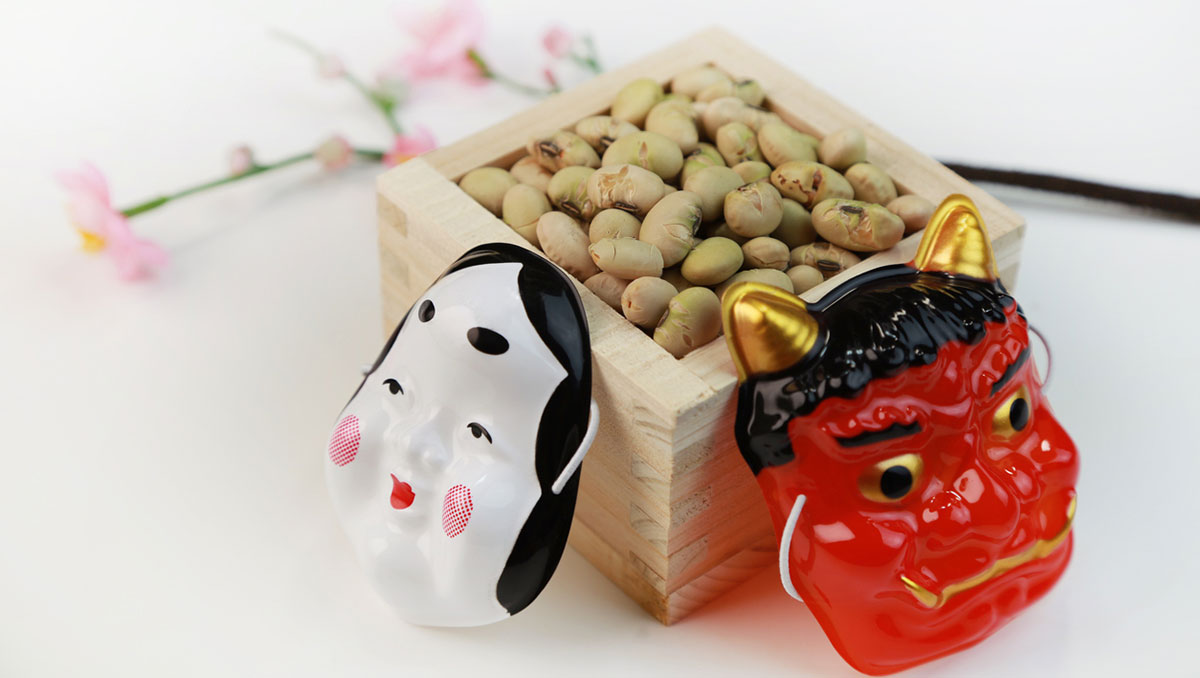日本文化を英語で説明しよう
節分編〜Setsubun〜
外国人の友達にどうやって説明する?
短い会話で伝えられる英語の例文集

豆まきについて
Throwing roasted soybeans was first practiced back in the Heian period, to stop oni from attacking villages by throwing beans at their eyes.
豆まきは平安時代に鞍馬山の鬼が都で悪さをするのを、大豆を投げて鬼の目をつぶし、災難を逃れたのが始まりです
The term oni refers to an invisible negative vibes called jaki in Japanese.
「鬼」とは目に見えない気、「邪気」のことを指します
To get rid of the oni, people scatter roasted soy beans both inside and outside of their houses.
鬼を追い払うために炒った大豆を家の中と外に撒きます
These roasted soy beans are called fukumame.
炒った大豆のことを「福豆」といいます
In order to instill god’s power in the fukumame, they are to be placed on the household altar until Setsubun.
福豆は神様の力が宿るように、節分の日まで神棚にお供えします
Traditionally, the husband or the *male person of the year took part in the practice, but it has now become a family-wide event to take in good luck for all family members.
*Male person of year: refers to a person who was born in the same Chinese zodiac sign as the current year.
本来は一家の主人か、その家の年男だけが撒く風習でしが、現在は一家みんなに福がくるように家族全員で豆まきをします
It has become the dad’s job to wear an oni mask and have soybeans thrown at him.
お父さんは鬼のお面をつけて鬼役をさせられ豆をぶつけられます
The phrase “Out with the devil! In with good fortune,” is said when throwing soybeans.
豆を蒔く時には「福はうち、鬼はそと」と掛け声をあげます
When saying “Out with the devil,” open a window and throw beans twice. Make sure to close the window immediately so the oni doesn’t come back.
「鬼はそと」と言う時は窓を開けて2回豆を撒きます。鬼が戻らないように窓をすぐ閉めましょう
When saying “In with good fortune,” throw soy beans twice inside the house.
「福はうち」という時は部屋の中に2回豆を撒きます
Once the beans are thrown, gather them all up and eat the same number of beans as your age. Eat one extra to keep you from sickness and stay healthy for the whole year.
撒いた豆を拾い、歳の数よりひとつ多く食べるとその年の1年風邪をひかず、健康でいることができます




















